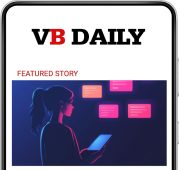Check out all the on-demand sessions from the Intelligent Security Summit here.
Like it or not, the age of NFTs is upon us. Despite their reputation as expensive jpegs, NFTs actually represent new infrastructure for the future of the internet. They have the ability to provide market insights without grossly intruding on our privacy; they can create communities and organizations; they can provide the data architecture needed to construct the true vision of Web3.
Forward-looking companies are currently scrambling to integrate NFTs into their tech stacks. We’ve seen NFT integrations by brands ranging from the NBA to Coachella. Some of these applications represent exciting advancements for membership economies, while others veer in the direction of co-opting the technology without delivering on the promise of Web3. As someone working daily to build NFT solutions, I present three things that companies can do to authentically integrate NFTs to bring their businesses into a more community-driven future.
It all starts with membership
The first step is to begin offering memberships and building a community. That might include issuing NFT membership tokens to loyal subscribers granting them access to your insider community. It could also be issuing an NFT to early supporters and enthusiasts, like the first 100 people to buy a product when it first drops.
These memberships provide an avenue for your company to offer the most interested and enthusiastic parts of your audience early access to products, news, content, special features or anything else. Further, by identifying the inner circle of your users, you can gain important insights and feedback into what matters most to them.
Event
Intelligent Security Summit On-Demand
Learn the critical role of AI & ML in cybersecurity and industry specific case studies. Watch on-demand sessions today.
These kinds of insider memberships enable your company to easily maintain and bolster users’ enthusiasm and ambassadorship of your brand. You can even grant that inner circle of users access to an NFT-gated peer-to-peer community space where they can interact with other members, help drive product feedback and help shape the future of the business. Using NFTs for memberships enables you to not only cement strong bonds with the community that’s most invested in what your company is creating, but also make your business a community-driven one.
Grant NFT holders early or exclusive access
Once you implement an NFT-based membership, a variety of possibilities emerge. One is granting early or exclusive access. For instance, a brand like Nike could offer subscription-based NFTs that give members inside access to early drops of sneakers. Members who buy a particular shoe could even gain access to a meet-and-greet or AMA with the designer.
And this wouldn’t even need to be confined to online events. NFTs are incredibly flexible, platform-agnostic infrastructure that can enable seamless experiences for in-person community gatherings by serving as tickets. The same NFT that enabled a member to join an exclusive AMA video call with a sneaker designer could also grant them access to an in-person tour of the design lab.
Give members a voice
Companies can also use NFTs to give members a voice in company decisions. After taking those access steps, Nike could later give members who have participated in several drops (which would be knowable based on the NFTs they hold) the ability to peek behind the curtain and vote on potential designs that are in development. Steps like these would enable Nike to deepen engagement with a core community in ways that are mutually beneficial: Members would have more access and decision-making influence, and Nike would drive excitement and sales.
A third kind of deeper integration could involve granting members increasing influence on the direction of projects. For instance, your Nike membership NFT could keep a record of your participation in drops, in votes on styles, and Nike could determine that members who have met certain involvement criteria can unlock access to discussions with product and design teams, strategy sessions and more. This would create further alignment of the community and the company and recognize the contributions of community luminaries.
Also, Nike could give members a variety of avenues to deepen their involvement with the company, corresponding to their particular interests. Some might be interested in participating in design decisions, while others might prefer to act as brand ambassadors — but all could be rewarded for being active community members. The possibilities are vast, and it’s all enabled by each member holding an NFT.
Building engagement across communities
As more and more companies integrate NFTs in ways to make membership more central to their businesses, cross-community partnerships will also be an area of opportunity. Brands and their communities will be able to do things like offer promotions for holders of NFTs from other companies whose communities have similar interests. What particularly excites me is that this kind of community integration can be done in ways that are far more human and far less data-intrusive than current approaches to customer acquisition.
This shift to a membership-based business model can be transformative. I anticipate that some companies will slowly edge into these waters, while others will go as far as the decentralized autonomous organization (DAO) model so that their businesses are entirely community-owned and operated. What’s so exciting is that NFT-based memberships give companies the flexibility to experiment with how deeply to involve their communities in their businesses, and to adjust over time.
To me, it’s the human element that has suffered the most in the growth of so many of our industries, while across our society, trust in corporations has eroded significantly. Memberships are a strong tool for empowering companies to become more community-centric and reverse this course. That’s the double-bottom-line that I see NFTs enabling, even as they give companies new avenues for economic growth, and I’m proud to be working on building that future.
Julien Genestoux is founder and CEO of Unlock Protocol.
DataDecisionMakers
Welcome to the VentureBeat community!
DataDecisionMakers is where experts, including the technical people doing data work, can share data-related insights and innovation.
If you want to read about cutting-edge ideas and up-to-date information, best practices, and the future of data and data tech, join us at DataDecisionMakers.
You might even consider contributing an article of your own!










